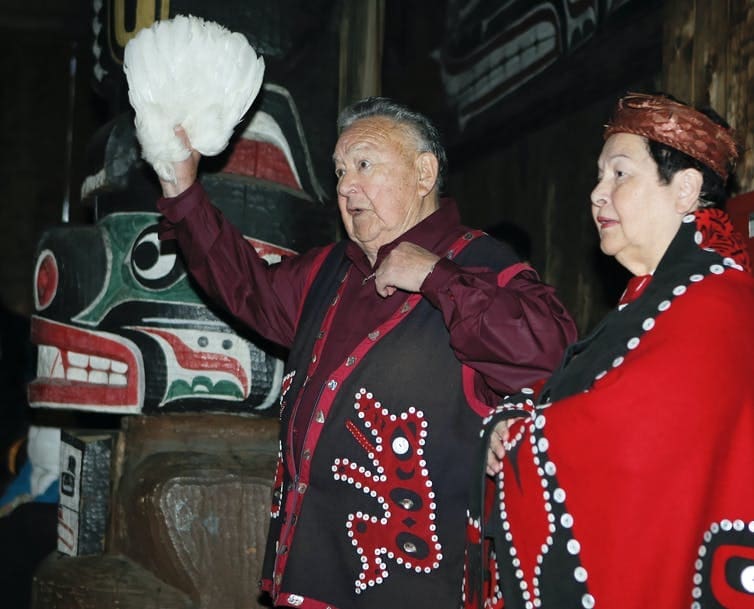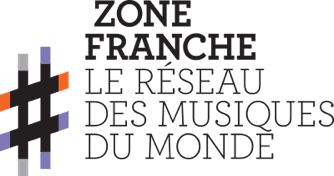Since the beginning of time, music has been a way of communicating observations of and experiences about the world. For Indigenous Peoples who have lived within their traditional territories for generations, music is a repository of ecological knowledge, with songs embedding ancestors’ knowledge, teachings and wisdom.
The music carries the word of the ancestors across time, transmitting key knowledge from deep in our sacred memory. Academics are just beginning to see the deep significance of these songs and the knowledge they carry and some are working with Indigenous collaborators to unlock their teachings.
At the same time, non-Indigenous researchers and the general public are becoming aware of the historic and current loss of songs. Indigenous communities are also grappling with what this means. The loss of songs was brought on by brought on by colonization, forced enrollment in residential schools and the passing of the last of the traditionally trained knowledge holders and song keepers.
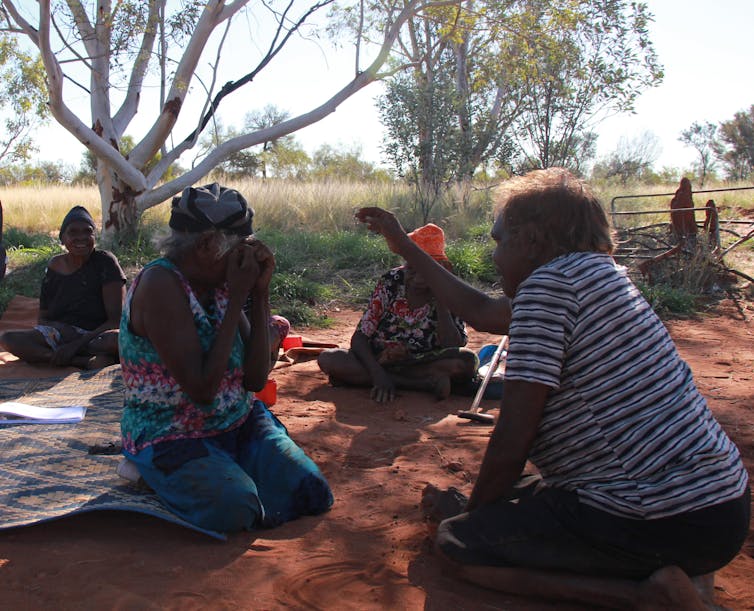
Time-honoured global traditions
A recent special issue of the Journal of Ethnobiology celebrates the power of traditional songs as storehouses of traditional ecological knowledge.
Nine articles are rich accounts of Indigenous Peoples’ time-honoured music-making traditions. These range from women’s songs relating to wild seeds in Australia, to improvisational singing traditions in Siberia, to the use of turtle shell rattles across the United States and the hunting songs of Amazonian hunter-gatherers.
Although traditional music is threatened by past government-sanctioned actions and laws, with much already lost, Indigenous Peoples globally continue to use music in sacred and ritual contexts and celebrate their traditional songs.
The lyrics in traditional songs are themselves imbued with meaning and history. Traditional songs often encode and model the proper, respectful way for humans, non-humans and the natural and supernatural realms to interact and intersect.
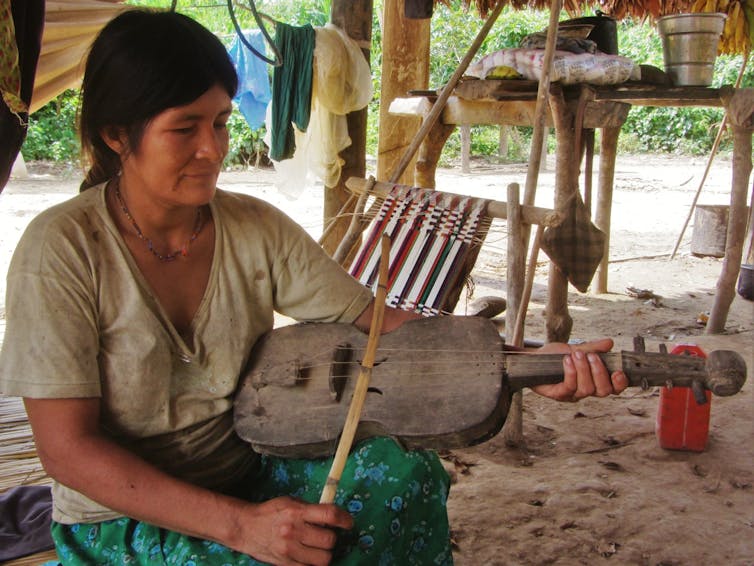
For instance, among the Temiar singers of the Malaysian rainforest — who often receive their songs in dreams from deceased people and who believe all living beings are capable of having “personhood” — dream-songs help mediate peoples’ relationships with these other beings.
In many Indigenous cultures, songs recount detailed biocultural knowledge that sits in specific places and thus can also document rights to, and responsibilities for, traditional territories.
Inspired by potlatch speaker
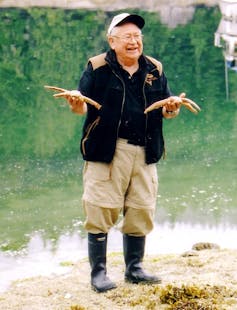
(Randy Bouchard), Author provided
The special issue was inspired by Kwaxsistalla Wathl’thla Clan Chief Adam Dick.
Kwaxsistalla Wathl’thla was a trained Clan Chief, held four pa’sa chieftain seats, and among many other roles, was the keeper of hundreds of songs about the Kwakwaka’wakw people, their traditional territory in coastal British Columbia, and all aspects of their lives and their ritual world.
In his role as ninogaad (culturally trained specialist), Kwaxsistalla Wathl’thla was the last culturally trained potlatch speaker. The cultural practice of potlatching is a central organizing structure of northern Northwest Coast peoples.
Potlatching was banned until 1951. As a result, singing potlatch songs was a source of punishment and fear for many generations. The interruption of the transmission of traditional songs in everyday and ritual life has been profound.
Revealed songs
As one born to nobility and chosen since birth to be a conduit of key cultural knowledge, Kwaxsistalla Wathl’thla let us hear the words of his ancestors through the many songs he remembered.
For instance, in 2002, he revealed an ancient ya’a (Dog Children song) that unlocked the mystery of lokiwey (clam gardens) on the Pacific Northwest Coast. Cultivating clams in clam gardens — rock walled terraces in the lower intertidal — is a widespread practice among Coastal First Nations. We now know this practice is at least 3,500 years old.
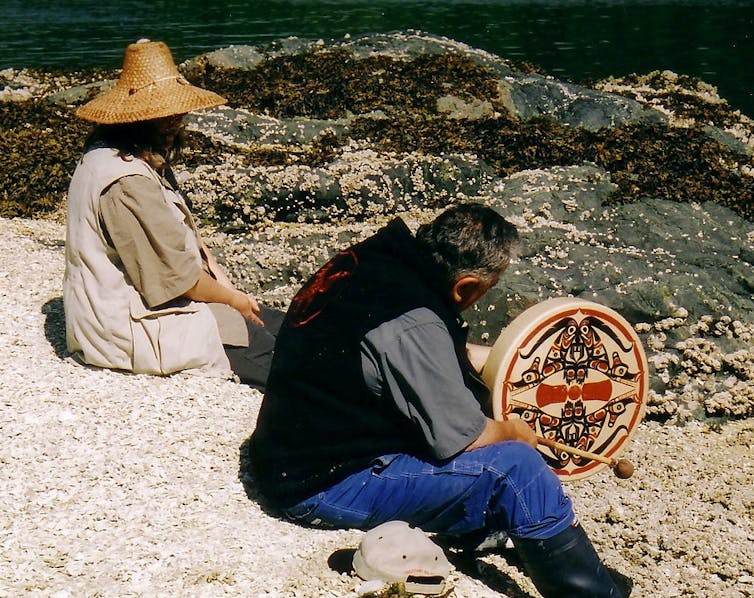
Kwaxsistalla Wathl’thla’s sharing of this clam garden song unleashed a wave of research on traditional management practices and helped not only awaken people’s understanding of the extent to which Indigenous Peoples tended their landscapes, but also provided the foundation for research on how to improve clam management.
Kwaxsistalla Wathl’thla went on to mentor and be the primary source on traditional ecological knowledge for over a dozen graduate students in ethnobiology and linguistics until his passing last year. Each graduate thesis had songs from Kwaxsistalla Wathl’thla’s repertoire as its foundation.
Song and reconciliation
Despite the immense global value of traditional songs as libraries of ecological and other cultural knowledge, researchers and the general public have been slow to recognize their social and cultural importance.
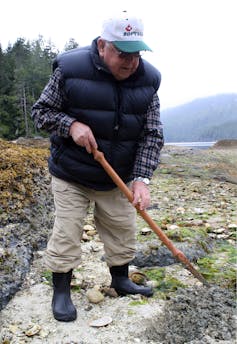
(Dana Lepofsky), Author provided
For instance, the findings of Canada’s Truth and Reconciliation Commission (TRC), highlight the importance of protecting and honouring Indigenous languages, but songs are not explicitly mentioned.
The TRC called on the federal government, with Aboriginal peoples, to: draft new legislation to commit to sufficient funding to protect Aboriginal peoples’ rights to their languages (Call to Action 10); to acknowledge that Aboriginal rights include Aboriginal language rights, and to seek with urgency to protect Aboriginal languages through an Aboriginal Languages Act and an Aboriginal Languages Commissioner (Calls to Action 13 – 15).
In many Indigenous cultures certain dialects, words and expressions are found only in certain songs, not in spoken conversations. Thus, protecting traditional songs is a critical aspect of protecting Indigenous languages.
The cultural importance of song was not missed by the Government of Canada and the churches who administered residential schools for more than a century. They saw all Indigenous language, spoken or sung, as counter to the colonial government’s mission to remove the “savage” from “the Indian children.”
The great uncle of Oqwilowgwa, one of this story’s authors, died from a beating at the residential school in Port Alberni for singing a child’s play song in his language. All music except hymns were strictly banned in residential schools until the 1960s.
Protecting rights and privileges today
Recognizing the importance of traditional songs and creating a context to promote this knowledge is fundamental to Canada’s reconciliation process. Speaking at the Truth and Reconciliation Commission’s Traditional Knowledge Keepers Forum, Blackfoot Elder Reg Crowshoe said:
« …So we are looking at finding those true meanings of reconciliation and forgiveness. We need to be aware or re-taught how to access those stories of our Elders, not only stories but songs, practices that give us those rights and privileges to access those stories … »
Indigenous songs, as detailed bio-cultural archives, are avenues for gaining a more nuanced and complex appreciation of ecosystems, including humans’ place within them. There is not only a moral imperative for protecting traditional songs, but also a practical one.
Such knowledge, as in the case of clam gardens, may provide important lessons about how people today can more respectfully and sustainably interact with our non-human neighbours. In these times of dramatic ecological and social change, honouring and safeguarding traditional songs has never been more important.
This article is republished from The Conversation under Creative Commons Licence. Read the original article.
